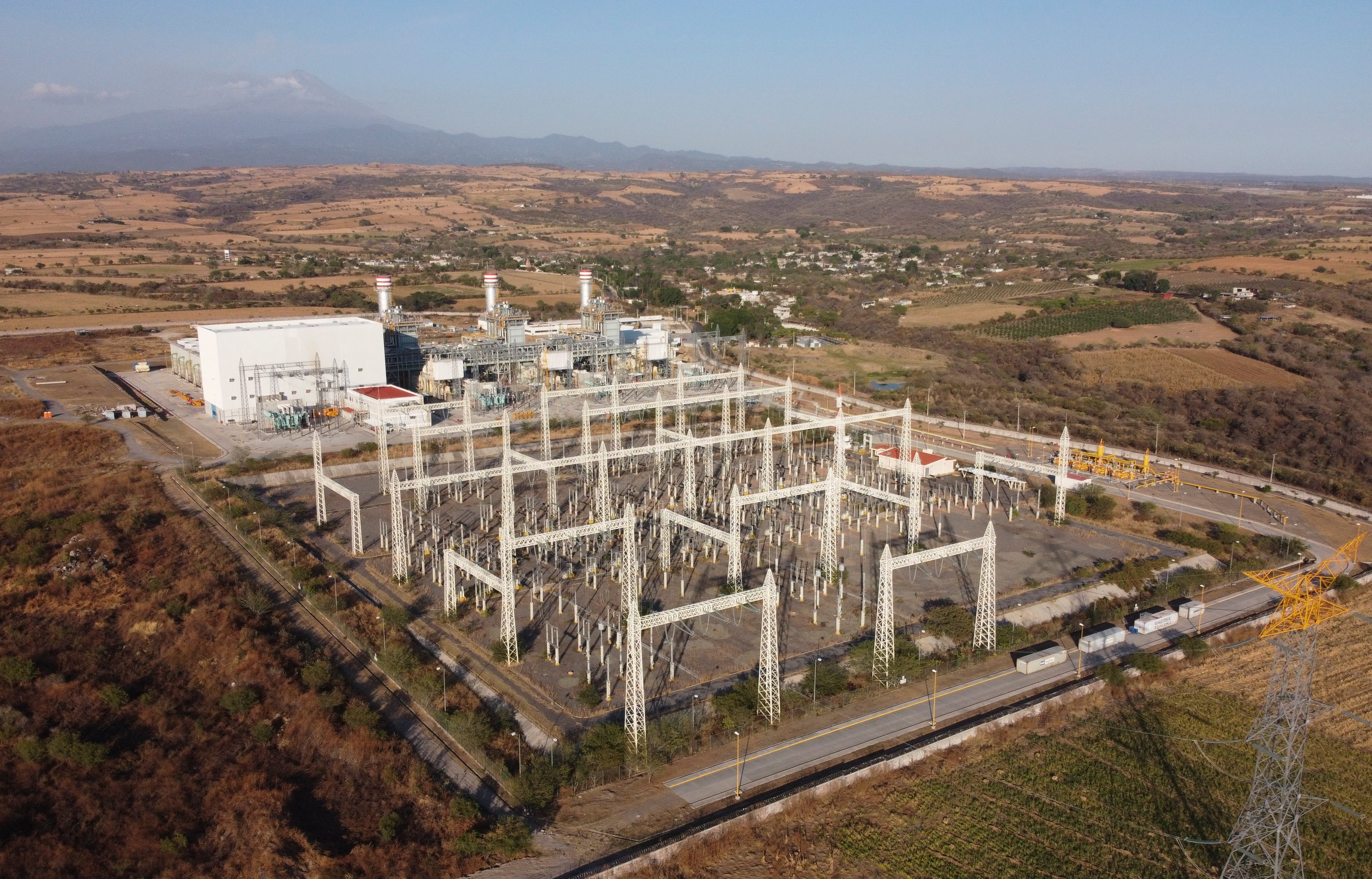Mexico vows to press ahead to favor state-owned utility
Mexico has vowed to press ahead with attempts to limit private power generation after the Supreme Court ruled against President Andrés Manuel López Obrador's attempt to block permits for renewable power plants

Your support helps us to tell the story
From reproductive rights to climate change to Big Tech, The Independent is on the ground when the story is developing. Whether it's investigating the financials of Elon Musk's pro-Trump PAC or producing our latest documentary, 'The A Word', which shines a light on the American women fighting for reproductive rights, we know how important it is to parse out the facts from the messaging.
At such a critical moment in US history, we need reporters on the ground. Your donation allows us to keep sending journalists to speak to both sides of the story.
The Independent is trusted by Americans across the entire political spectrum. And unlike many other quality news outlets, we choose not to lock Americans out of our reporting and analysis with paywalls. We believe quality journalism should be available to everyone, paid for by those who can afford it.
Your support makes all the difference.Mexico vowed Thursday to continue with attempts to limit private power generation after the Supreme Court ruled against President Andrés Manuel López Obrador’s attempt to block permits for renewable power plants.
Interior Secretary Olga Sánchez Cordero said the court ruling applied only to a 2020 executive order and said the administration would wage a new court battle over another bill the president sent to Congress this month.
The new bill would give priority in electricity purchases to older, more polluting, state-owned power plants. It is the latest chapter in a battle over private and renewable energy plants that were encouraged by López Obrador’s predecessors.
“This ruling involved the constitutionality of an (executive) order, and that is very different from a law,” Sánchez Cordero said. “So I think we have enough ammunition in common and constitutional law to go ahead, because I insist, we are not rejecting private investment in the energy field.”
With electricity use down during the pandemic, Mexico’s state-owned power company, the Federal Electricity Commission, faces declining revenue and increasing stocks of fuel oil it has to burn in power plants; the dirty fuel has lost customers worldwide. It has also come under pressure to buy coal from domestic mines.
López Obrador sought in an executive order in 2020 to shore up the government company by limiting permits to bring online other plants, including some wind and solar facilities that are already built, in some cases with foreign investment. The president claims that green-energy incentives give those plants an unfair advantage over the state utility.
But on Wednesday, the Supreme Court ruled that many of the provisions of the executive order would unfairly affect competition in the sector. Some of the rules had been put on hold previously. The case was brought by the government's own anti-monopoly commission.
The first bill López Obrador sent to Congress this year would mandate that the first power to be used on national grids would have to be from government plants, many of which burn coal or fuel oil. Privately run natural gas and renewable energy would be the last in line.
Mexican business groups say the proposed law would hurt investors and force Mexicans to buy more expensive electrical power from the dirtier government-owned plants. It would also endanger Mexico's commitments to reduce carbon emissions, and possibly cause disputes with foreign investors under the US-Mexico-Canada trade agreement.
Sánchez Cordero defended the proposal, saying “a sector like electricity that is so strategic, involving national security, has to be under government stewardship. That does not mean that private firms cannot participate, within certain limits and rules.”
López Obrador is trying to fast-track the bill through Congress in 30 days.
The business groups contend that the new law would put at risk Mexican industrial firms, and would hurt investors who, under the existing rules, invested heavily in Mexican plants.
“This opens the way to indirect expropriation of private plants, by changing the ground rules to create a monopoly” for the state-owned Federal Electricity Commission, the Business Coordinating Council said in a statement.
The Mexican Federation of Industry Chambers said the law “condemns the country to consuming polluting and expensive power, and if it becomes law, will cause irreversible damage to our country’s economy and competitivity.”
The Mexican Institute for Competitivity said the proposed law “goes against the Constitution and international trade agreements, specifically the U.S.-Mexico-Canada Agreement. It would also take the country away from the path of the transition to clean energy, and lead to noncompliance with the Paris Accords.”
In a panel discussion Wednesday, Duncan Wood, Vice President for Strategy & New Initiatives at the Washington-based Wilson Center said laws like the new energy bill are "actually not going to help Mexico succeed."
"They’re actually going to weaken confidence in the economy, drive up prices and perhaps even more problematic in the long term, is weaken Mexico’s commitment to reducing emissions,” Wood said.
Roberto Velasco, Mexico’s director general of North American affairs, said “I understand there is some level of concern regarding this initiative.”
“This initiative is trying to address a real issue which is that given the current sharp decrease on aggregate demand the electric system must cope swiftly in order to guarantee energy supply," Velasco said. "We have a reality which is in the past few months we’ve seen sharp decreases in energy consumption.”
López Obrador is known for his love of the oil industry and state-owned firms, and he has had a testy relationship with the private sector in his first two years in office.
Mexican industries have long been hobbled by the country’s relatively expensive and unreliable electricity supply. A 2013 legal overhaul opened the way for private companies, many of them foreign, to invest more heavily in the sector.